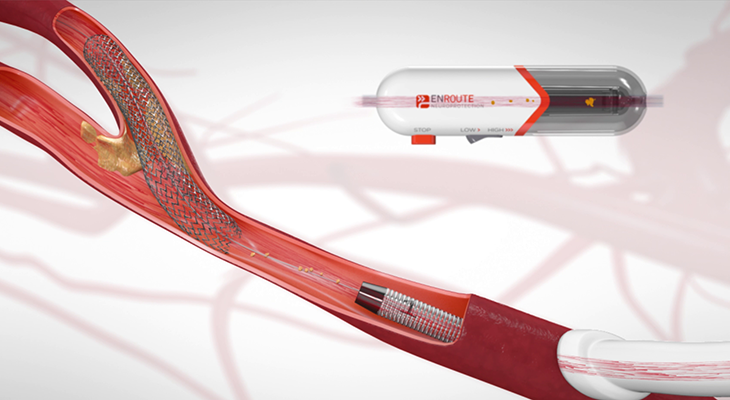
Removing plaque buildup in the carotid arteries typically required a carotid endarterectomy. Now, Norton Heart & Vascular Institute physicians use the TCAR procedure to help reduce risk of complications.
Conventional surgery to clean stroke-causing plaque buildup from carotid arteries often comes with risks ranging from infection to heart attack and nerve damage.
Now, a minimally invasive surgical approach to treat carotid artery disease can speed recovery, lower risks and help prevent future strokes.
Norton Heart & Vascular Institute physicians are using an innovative procedure called transcarotid artery revascularization (TCAR). This procedure can be safer for individuals who need plaque buildup removed from their carotid arteries. Up to one-third of all strokes are caused by plaque buildup in the carotid arteries.
“In the U.S., about 400,000 new diagnoses of carotid artery disease are discovered every year,” said Ferenc P. Nagy, M.D., vascular surgeon with Norton Heart & Vascular Institute. “TCAR is an important new option in the fight against stroke. It is particularly suited for a significant number of patients who are at higher risk of complications from traditional carotid surgery. Age, anatomy or other medical conditions can add to their risk.”
TCAR HELPS PREVENT STROKES AND MANY PATIENTS RECOVER FASTER WITH FEWER COMPLICATIONS
Prior to TCAR, the main treatment option for severe carotid artery disease was a carotid endarterectomy. The large incision leaves a visible scar on the neck and carries risks of surgical complications, including bleeding, infection, heart attack and cranial nerve injuries. Nerve damage can cause issues with swallowing, speaking and sensation in the face.
The unique difference with a TCAR procedure is that blood flow is cycled through a filter to catch any small bits of plaque that may break away. This diverts the plaque fragments away from the brain, preventing a stroke during the procedure. A stent is then placed inside the artery to stabilize the plaque buildup and help prevent it from breaking off or clogging the artery, further minimizing the risk of stroke.

